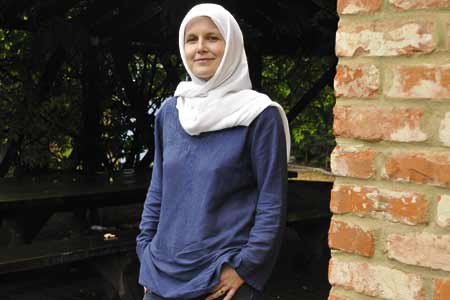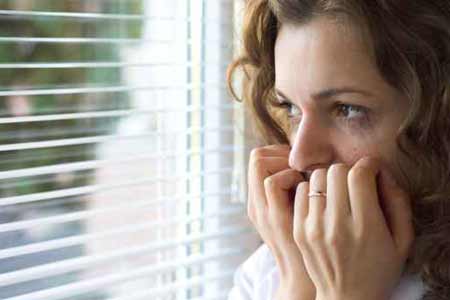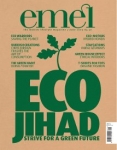
Feel the fear and know who to trust
Issue 57 June 2009
by Lucy Bushill-Matthews
“I must not fear. Fear is the mind-killer. Fear is the little-death that brings total obliteration. I will face my fear. I will permit it to pass over me and through me. And when it has gone past I will turn the inner eye to see its path. Where the fear has gone there will be nothing. Only I will remain.” Frank Herbert, Dune, “Litany Against Fear”, 1965
‘’Are you ever afraid?” my ten year old daughter asks me, on our way to school. She is afraid. A few weeks ago, in our temporary home town of Johannesburg in South Africa, she was sitting next to me as we arrived home one sunny Saturday. She saw a car parked in our driveway and two men calmly telling me to drive away. She saw one of them take out a gun. And she saw the other approach me with a baton, reach into the car and take my handbag from under my seat. Then she saw another two men walk out of our house with our television set. Unfortunately, this is not an unusual occurrence in South Africa. Locals repeatedly tell us how fortunate we are that we were not harmed.
I think about what to tell my child. Am I afraid? Should she be afraid? And how can she know who to trust?
Living in South Africa has turned the English notions I was brought up with on their head. Always trust a policeman? Not in South Africa: he may be a fake - or he may be a genuine policeman and also a criminal. Should I help the little child who is alone in the street? Not in South Africa: he may have an ill-intentioned relative lurking just round the corner. Shouldn’t we always help someone who has been in a car accident? Not in South Africa: they may be trying to lure you out of your car. Mainstream newspapers in South Africa share my concerns.
In my home country of England, I was used to experiencing a lack of trust, albeit for different reasons. In fact, I found fear was surprisingly pervasive. Many people would not let their children out of their sight even for a moment in case a paedophile appeared and snatched them. I felt some fear myself after the London bombings in 2005, when I travelled on the very same London Underground which had transported the Muslim bombers only the day before.
And as a Muslim, I observed the fear in my neighbours’ faces when I made casual small talk with them soon after the bombings: one neighbour was keen to renew his trust in Muslims again but told me candidly, “It will take time”. The word ‘madrasah’ seemed to evoke such extensive fear that I was unable to confess my children actually went to one. I used to say they were attending a ‘Muslim after-school club’– it sounded a lot less scary, even to me. In South Africa, a madrasah can be the cause of fear too but, interestingly, for very different reasons. A madrasah provokes the fear that the many cars parked outside waiting to collect their children may act as a magnet for potential hi-jackers.
There seems to be fear everywhere. Seventy five percent of MI5’s budget is currently spent on counter-terrorism security relating to Muslims. International cricket in Pakistan is not an option at the moment, due to fears for the safety of the teams. Over £100,000 of ‘Viva Palestina’ funds have been frozen for fear of how the money is to be used.
I used to explain to my South African friends that I preferred the security situation in South Africa – where the dangers are visible and often in your driveway – to the security situation in the UK, where the dangers are invisible yet apparently all-pervasive. But having now met some people in my own driveway, I have changed my mind. Both environments generate fear.
Fear is not all bad. In fact, fear can be positive. Fear causes us to plan for the future by taking actions in the present. It allows us to manage risk and make better decisions. According to a hadith, Prophet Muhammad noticed a Bedouin leaving his camel without tying it and he asked the Bedouin “Why didn’t you tie down your camel?” The Bedouin answered, “I put my trust in God.” Muhammad replied, “Tie your camel and put your trust in God.”
My husband and I are taking our own precautions: we are strengthening the side-gate, installing movement-activated beams, finding out who our neighbours are and contributing towards a neighbourhood guard. The British Government is taking precautions by ensuring the UK has more cameras per head of population than any other country and incorporating four million of our DNA samples onto a police database. But my daughter asks me, “How do we know we can trust our guard?” And we all ask, “How can we trust those responsible for our security on a national level when they leave confidential data lying around?”
But fear can also be negative. It was President Roosevelt who said, “Let me assert my firm belief that the only thing we have to fear is fear itself — nameless, unreasoning, unjustified terror which paralyses needed efforts to convert retreat into advance.”
Fear can indeed paralyse our efforts to lead normal lives, and enjoy the freedoms with which we have been blessed. We have now installed so much security in our house that it takes eight keys for me to let visitors in through the front door! Fear of Muslim air passengers in the US has resulted in several Muslim holidaymaking couples being forced to disembark. Or fear can lead to total inaction and a refusal to accept change. I could stay locked up in my house, not willing to venture out in case I met some criminals. And our Government could choose to seal our borders, just in case some unsavoury characters should want to come in.
Fear can remain long after the initial cause of the fear. For a while after the robbery, I was afraid of being at home. I had just got over it, and then – despite our added security – the robbers came a second time to finish the job they had started. I am aware that they may come yet again. The repeated arrests of Muslims in the UK similarly serve to perpetuate the sense of fear that attacks are being continually planned.
Yet faith can help to channel our fears. As a Muslim, I believe that everything happens for a reason. Initially, I had been unable to fathom what possible benefit there could have been in experiencing these difficult times. And then it was pointed out to me that the fear I felt within my own home was just a fraction of the fear a Palestinian must have felt in his or her home during the onslaught on Gaza, when faced with relentless attacks from the air and the ground by missiles that kill and destroy. It certainly enabled me to feel increased empathy with their plight. I finally felt a sense both of understanding and of relief. Only then was I able to make a heartfelt and individual prayer to thank God for what had happened and to thank God that we were all now safe.

“Why do people choose to be bad?’’ asked my daughter, trying to make sense of it all in her own way. She knows we have complete freedom of belief – and also freedom of choice. And she can’t understand the choice to act in such a way that instils fear in others. I taught her a prayer of Prophet Muhammad ‘O God, I seek refuge in You from the heart that does not have the fear of God; from the prayer that is not responded; from the soul that is never satisfied; and from the knowledge that does not bring benefit.’ And I held her as tightly as I could.
This is not about one group of people being less worthy of our trust than another. In our house break-ins, all the people were black men. I have emphasised to my child that the majority of human beings of every colour are kind. I have reminded her that white men – and white women – commit crimes too. And I asked her how she would feel if it had been Muslims who had been responsible for the crime. She replied instantly: “Then I wouldn’t trust them either. I only trust those people who I know.” For me that response is illuminating. We know hundreds of Muslims. But Muslims are not better or worse than any other collection of people. We are one common humanity, and within that humanity there will be those individuals who choose to ruin the lives of others.
So, do I tell my child that I am afraid? Not any longer. Now I can honestly say I am not afraid of black men, Muslims, white women or anyone else – even if they do ultimately prove to be threatening.
In all world religions we are taught not to be afraid. According to Hinduism, fear is illusory – only courage is eternal. Throughout the Bible God commanded individuals to ‘fear not’ or ‘do not be afraid,’ assuring them of His presence and His help. And the Qur’an clearly states: “Verily, those who have attained to faith in this divine writ, as well as those who follow the Jewish faith, and the Christians, and the Sabeans – all who believe in God and the Last Day and do righteous deeds – shall have their reward with their Sustainer; and no fear need they have, and neither shall they grieve.” (2:62) All each of us can do is to pray that we are kept safe and put our trust in God.
I now know that I cannot guarantee the protection of my own child. In fact, no parent can. And at the tender age of ten, my daughter knows this too. But whatever happens will be for the best; it will be part of God’s plan. Wherever we are in the world, I will tie my camel – and help her tie hers – and place complete trust in God. Then we will not be afraid.
And then I arrive home and see a massive cockroach steadily making its way across my lounge rug. Maybe I do still harbour just a little bit of fear, after all.
Bookmark this |
|
Add to DIGG |
|
Add to del.icio.us |
|
Stumble this |
|
Share on Facebook |
|
Share this |
|
Send to a Friend |
|
Link to this |
|
Printer Friendly |
|
Print in plain text |
|


Comments
0 Comments